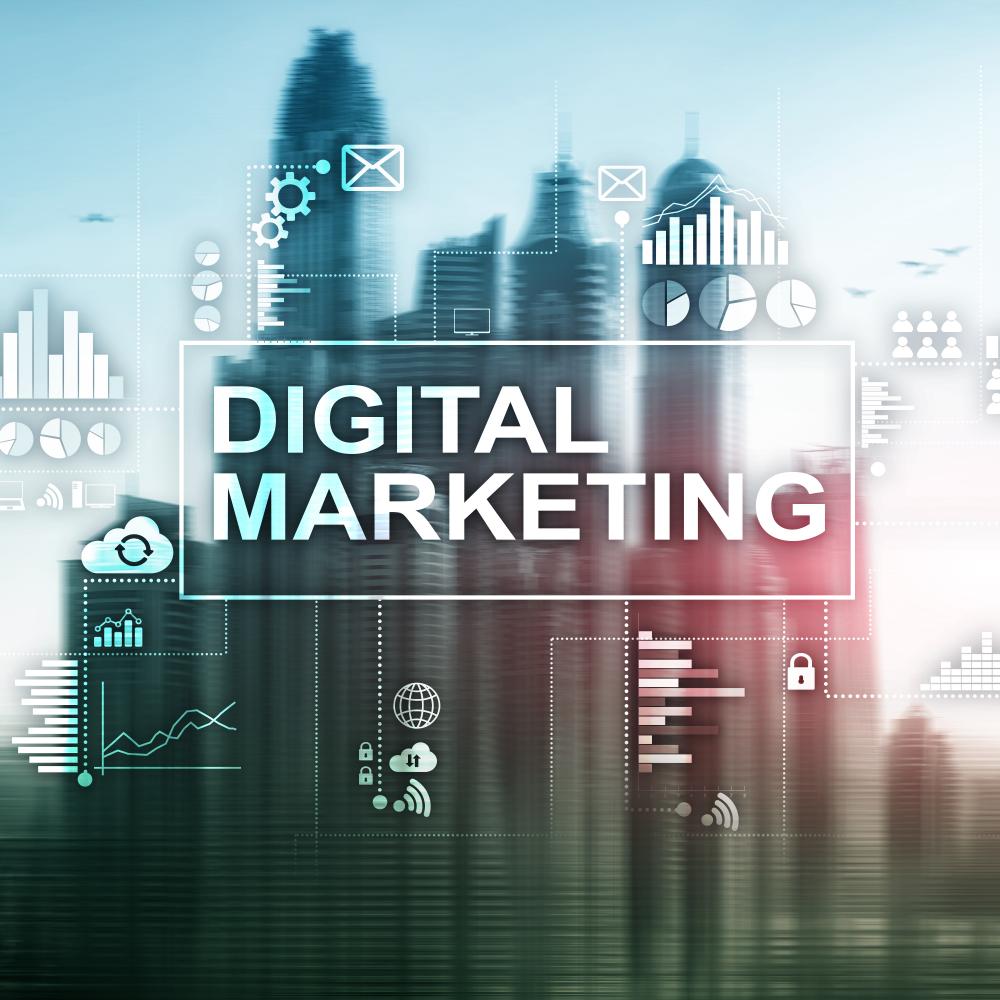Digital Media Holdings Company

The Evolution of Digital Media Holdings
Twenty years ago, the landscape of digital media was vastly different. Companies stepping into this domain were pioneers in uncharted territory. The term digital media holdings company back then mostly referred to businesses dabbling in early internet advertising and content creation. Fast forward to today, and the evolution has been nothing short of revolutionary.
Modern digital media holdings companies are multifaceted entities. They don’t simply create content; they curate vast data, manage cross-platform advertising, and engage in intricate analytics. In my over 20 years of experience at Digital Wizards, I’ve witnessed firsthand how these companies have transformed the very essence of online engagement, shifting from static web pages to dynamic, data-driven ecosystems.
Why Digital Media Holdings Companies Matter
Digital media holdings companies play a crucial role in today’s digital economy. They act as a bridge between content creators, advertisers, and consumers. By leveraging their vast networks and expertise, they ensure that content reaches the right audience at the right time.
As someone deeply involved in the industry, I’ve seen these companies optimize advertising campaigns, enhance user engagement, and significantly boost ROI for businesses. Their ability to adapt and innovate is what keeps them at the forefront of the digital revolution. It’s not just about holding media but about actively orchestrating a complex, interactive ecosystem.
For instance, digital media holdings companies utilize advanced algorithms and AI to tailor content and advertising to individual preferences. This personalization not only enhances user experience but also maximizes engagement and conversion rates. Their expertise lies in turning data into actionable insights, and this is where the true value of a digital media holdings company shines.
Overcoming Challenges and Embracing Opportunities
Operating a digital media holdings company comes with its unique set of challenges. The rapid pace of technological advancement means that what works today might be obsolete tomorrow. However, this instability also brings opportunities for growth and innovation.
Having led initiatives at Digital Wizards, I find that the key to thriving in this ever-evolving landscape is agility. Companies must be willing to experiment, pivot, and adopt new technologies. Embracing change rather than resisting it creates pathways to success.
One major challenge that these companies face is ensuring data privacy and compliance with international regulations. Balancing personalization with privacy is a tricky act. Yet, with careful strategic planning and transparent practices, digital media holdings companies can navigate these waters successfully.
An opportunity lies in expanding into emerging markets where digital infrastructure is just beginning to take off. By localizing content and investing in regional partnerships, a digital media holdings company can tap into new demographics and untapped potential.
What Qualifies as a Digital Media Holdings Company?
At its core, a digital media holdings company manages and owns digital content assets, including media channels, advertising platforms, and data analytics tools. They typically integrate these components to deliver cohesive media strategies.
Here are the main qualities that define such companies:
- Sophisticated digital content creation and distribution capabilities.
- Advanced data analytics and audience targeting tools.
- Strong partnerships with advertisers and content creators.
- Commitment to adhering to industry standards and regulations.
- Focus on ongoing innovation and technological adoption.
The Future of Digital Media Holdings
So, what lies ahead for the digital media holdings company landscape? Emerging technologies such as AI, VR, and blockchain are poised to reshape the industry further. From more immersive advertising experiences to decentralized content models, the future holds immense possibilities.
One emerging trend is the rise of interactive and immersive content. As technology progresses, digital media holdings companies are positioned to lead the charge in integrating virtual reality (VR) and augmented reality (AR) into mainstream media.
Another profound shift will likely be in the realm of ethical advertising. Companies are realizing the need to forge genuine connections rather than simply selling products. This shift towards authenticity and transparency can foster trust and long-term customer loyalty, ensuring that these companies remain relevant and influential.
- Innovation: Embrace cutting-edge technologies to enhance engagement.
- Transparency: Build trust through ethical practices and clear communication.
- Diversification: Expand into new markets and content areas.
As we reflect on these potential advancements, it’s vital to stay open to change and maintain a forward-thinking mindset. At Digital Wizards, we’re excited to navigate this dynamic and promising future.

What is a Digital Media Holdings Company and How Does it Function?
A digital media holdings company is essentially an umbrella organization that manages and owns various digital content assets. These assets can include media channels, advertising platforms, and sophisticated data analytics tools. The main goal of these companies is to create and distribute digital content effectively, analyze audience engagement, and optimize targeted advertising strategies. I often liken them to a master conductor in an orchestra, ensuring that every piece works harmoniously to create an engaging and seamless experience for the end-user. This multifaceted approach allows such companies to adapt quickly to technological advancements, ensuring they remain competitive in an ever-evolving market.
Have you ever considered how the intricacies of this digital symphony might impact your daily online interactions? Feel free to share your thoughts!
Why Do Digital Media Holdings Companies Play a Critical Role in Today’s Economy?
Digital media holdings companies are pivotal in the digital economy as they bridge the gap between content creators, advertisers, and consumers. They rely on vast networks and expertise to ensure content reaches the right audience at optimal times. For example, their use of advanced AI and algorithms allows for content personalization, providing users with relevant and engaging information tailored to their preferences. This not only enhances the user experience but also boosts conversion rates and return on investment for businesses. In my experience, focusing on these targeted approaches is key to maintaining relevance in this fast-paced digital era.
Given this significant impact, how do you see digital media transforming industries you’re personally interested in?
What Challenges and Opportunities Do Digital Media Holdings Companies Face?
Digital media holdings companies navigate a landscape filled with both challenges and opportunities. One significant challenge is the rapid technological evolution, which can render current systems obsolete quickly. Yet, this also opens doors for innovation and growth. For instance, one opportunity lies within emerging markets where digital infrastructure is beginning to develop. By localizing content and forming regional partnerships, these companies can tap into new consumer bases. Another challenge is balancing data personalization with privacy, a concern that’s ever-growing. However, with strategic planning and transparent practices, it’s possible to build trust while still delivering personalized content.
How do you think companies should balance innovation and privacy in digital media? Share your thoughts!
What Attributes Qualify a Business as a Digital Media Holdings Company?
Several key attributes define a digital media holdings company. These include sophisticated capabilities in digital content creation and distribution, advanced data analytics, and audience targeting tools. Strong partnerships with advertisers and content creators are also essential, as is a commitment to adhering to industry standards and regulations. Moreover, an ongoing focus on innovation and technological adoption is critical, ensuring that these companies remain at the cutting edge of the digital landscape. Think of these attributes as the backbone of such businesses, supporting their ability to drive growth and deliver value across the digital ecosystem.
Does your business align with these practices? Consider how integrating some of these qualities might enhance your digital strategy.
What Does the Future Hold for Digital Media Holdings Companies?
The future of digital media holdings companies is incredibly exciting, with emerging technologies like AI, VR, and blockchain set to revolutionize the industry further. The rise of immersive and interactive content, such as VR and AR, presents opportunities to create more engaging and memorable advertising experiences. Ethical advertising will also become more prominent, with companies focusing on authenticity to foster stronger connections with their audiences. By embracing innovation, maintaining transparency, and diversifying into new markets, digital media holdings companies can ensure they stay ahead in a rapidly changing landscape.
How do you envision these technological advancements shaping the digital media environment? I’d love to hear your perspective!
Resources
- Digital Media Association – The official website of the Digital Media Association, providing information and resources related to digital media regulations and policies.
- Pew Research Center – Digital Media – Explore the latest research and data on digital media trends and its impact on society from the Pew Research Center.
- Knight Foundation – Digital Media – Discover insights and initiatives focused on supporting innovation and excellence in digital media from the Knight Foundation.
- Creative Commons – Learn about Creative Commons licenses that enable creators to share their work while retaining copyright over their creations.
- World Wide Web Consortium (W3C) – Access resources and standards for the World Wide Web to ensure a consistent and interoperable web experience for users worldwide.